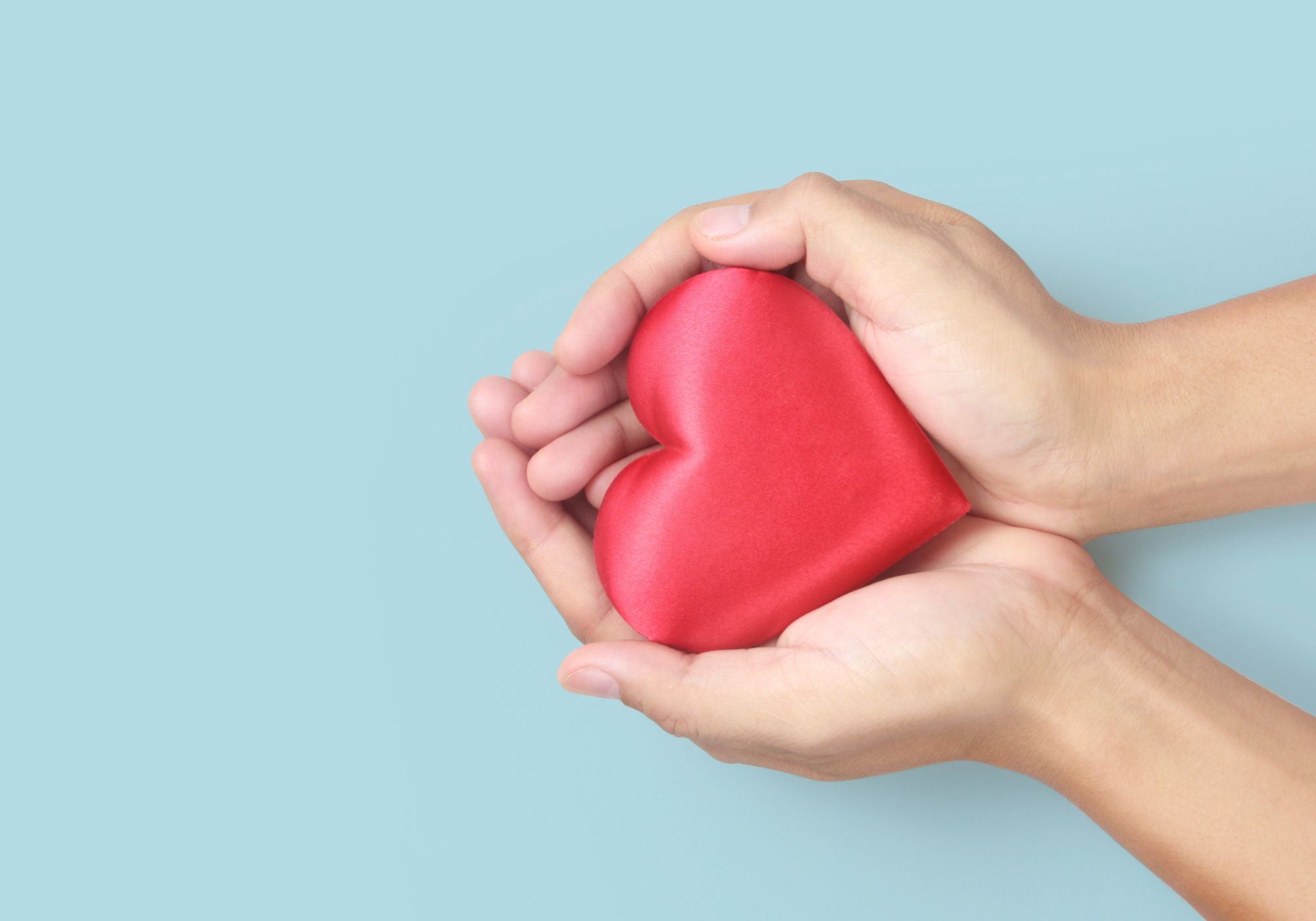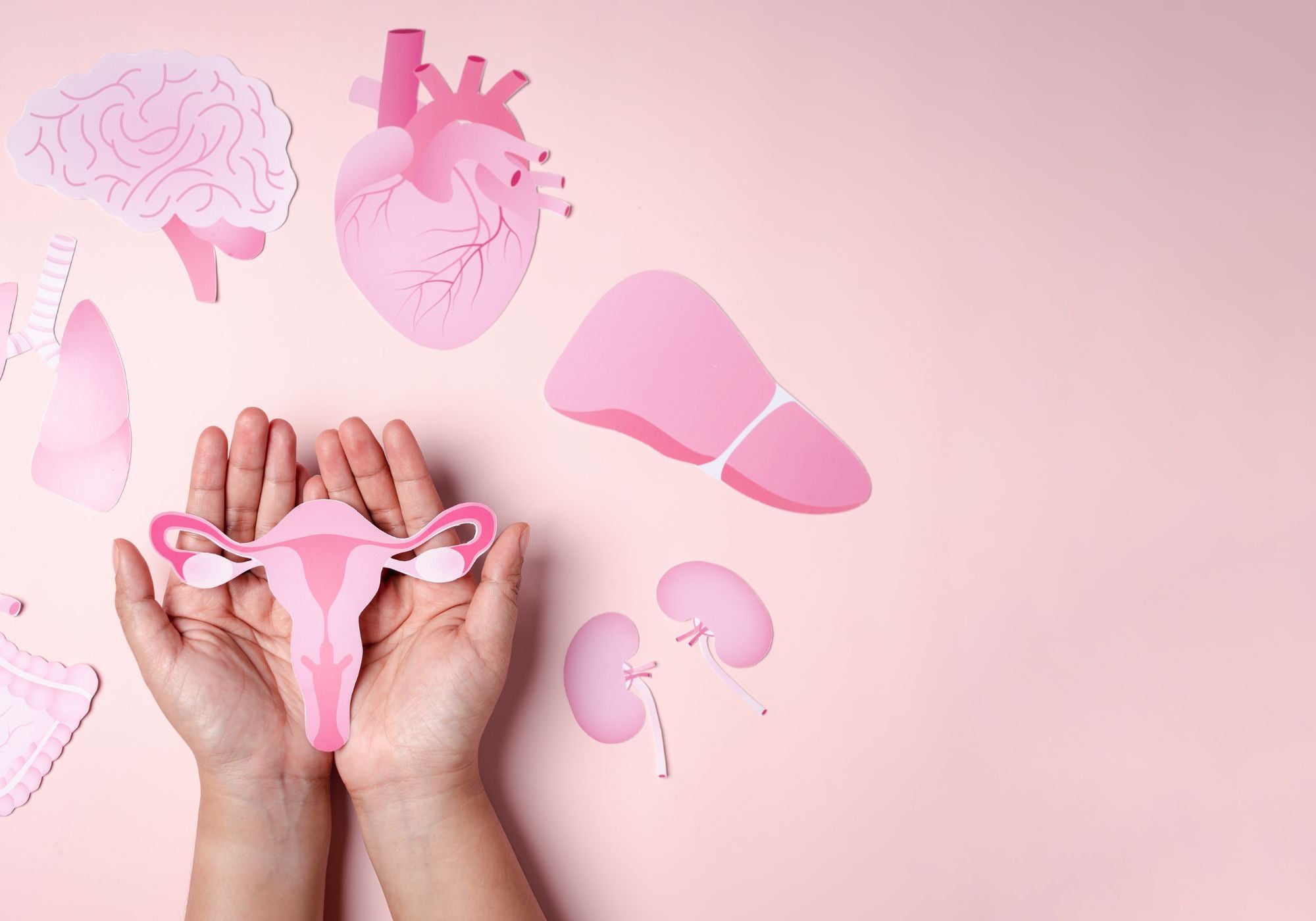More than just Hot Flushes
If you do a google search for ‘menopause symptoms’ you will probably be overwhelmed by how many results you get.
There are lots of them.
So before we dive into the complex world of these symptoms, there are a few things to say first:
-
Every woman is different. Not every woman gets every symptom, and some women have none at all
-
Your symptoms often change over time and you can wake up one day with a completely new one. They can come and go at random, at any time of day or night. Sometimes your symptoms can be mild and other times unbearable
-
There are no rules about how long a woman will have symptoms for. More than 10% of women still have symptoms after ten years
-
The symptoms can look the same as symptoms caused by lots of other things including medical conditions, unhealthy diet habits, the normal ageing process, stress, alcohol and also medication/supplement side effects. So before we start blaming our hormones, we have to rule these other things out first
-
You don’t have to have hot flushes to be perimenopausal or menopausal
-
Your periods can still be normal in the perimenopause
The reason for the huge variety of symptoms is because our bodies are packed from head to toe with receptors for the three major female sex hormones:

Physical Symptoms
Hot flushes - Night sweats - Changes in periods - Palpitations - Headaches or Migraines - Bloating - Dizziness. -Breast tenderness. -Body aches (muscles and joints) -Itchy or dry skin - Hair thinning - Feeling of ants crawling on the skin (formication) - Numbness or tingling in parts of the body - Tinnitus - Vertigo - Dry or irritated eyes - Nausea - Digestive problems - Brittle nails

Psychological Symptoms
Mood swings - Memory and concentration problems - Depression - Anxiety and panic attacks - Feeling irritable or grumpy - Loss of libido - Loss of motivation - Loss of interest in things - Tiredness - Insomnia

Vaginal and Urinary Symptoms
Vaginal dryness/itch - Passing urine more frequently (including at night) - Pain passing urine - Difficulty controlling the bladder - Recurrent UTIs - Pain on having sex
Hot Flushes and Night Sweats
When most people think of menopause, hot flushes—also called hot flashes—are usually the first symptom that comes to mind. Around 80% of women experience them, which means 20% don’t. A hot flush often begins as a sudden wave of heat across the chest or neck, spreading upward to the face and head, though it can affect any part of the body. Some women notice sweating or redness, while others simply feel a rush of inner warmth. The sensation can last anywhere from a few seconds to several minutes, and some women experience more than 20 episodes a day.
Often, there’s an adrenaline surge just before a flush, bringing feelings of palpitations, anxiety, or light-headedness. When they happen at night, they’re known as night sweats—episodes that can wake women multiple times, sometimes leaving them drenched enough to need to change bedding or clothing. Over time, disrupted sleep can take a toll, and some women even find it difficult to share a bed with their partner because of it.
For most women, hot flushes gradually fade, though the timeline varies widely. On average, they last around four to seven years in total. About one-third of women continue to have them for 10 years or more, and roughly 10% may still experience occasional episodes into their 60s or 70s. They typically begin during perimenopause—the years leading up to menopause—are most intense in the first one to two years after the final menstrual period, and then slowly ease in frequency and severity.
Certain triggers can make hot flushes worse, including alcohol, hot or caffeinated drinks, spicy foods, stress, tight-fitting clothing, and warm environments. While the exact cause isn’t fully understood, researchers believe it’s linked to estrogen’s effect on the body’s thermostat—a part of the brain called the hypothalamus that helps regulate temperature. When estrogen levels fall, the hypothalamus becomes more sensitive, mistakenly interpreting normal body temperature as too hot. The body responds by opening blood vessels and producing sweat to cool down, creating the familiar wave of heat that so many women know all too well.
Changes in Periods
In the perimenopause, the fluctuating hormone levels can often lead to changes in the timing, length and flow of your periods. This varies between women and can be a change that makes them lighter, heavier, more spaced out, closer together, longer or shorter in duration. Other women notice no change in their periods at all. For women who get heavier periods, this can sometimes be so severe that they become anaemic.
In menopause, your periods stop altogether. Once you have not had a period for one whole year, then we can call this menopause.
Insomnia
It’s very common to have disturbances in your sleep. This can be trouble falling asleep, waking up throughout the night or waking very early in the morning and not being able to return to sleep.
Sometimes women wake up because they are having night sweats or because they need to pass urine or because their mind is racing with anxious thoughts – other times there seems to be no reason at all.
Fatigue
This is probably one of the most common symptoms I see as a GP. Women are often exhausted – and there are lots of reasons for this. They may not be sleeping properly because of night sweats or bladder symptoms. They may be spending most of their days overwhelmed with anxiety and feelings of panic which drive up our cortisol and rip away our energy levels. Many women just feel like their ‘oomph’ has gone. They are running on empty and struggling to keep up with their busy lives.
Brain Fog
This is when women notice changes in their memory, mental focus and concentration. They often worry they are having an early dementia.
The hormonal changes of menopause can rob us of our multi-tasking superpower – we are no longer able to juggle all of life’s demands. We are left feeling overwhelmed and inadequate. Many women going through the menopause find they can no longer perform in their jobs and need to take increasing time off, reduce their hours or even resign.
Mood Changes
This is a hugely significant symptom for many women. Our hormones play a key role in regulating our mood and mindset. Fluctuating estrogen, progesterone and testosterone can lead to feelings of depression, anxiety, irritability and even anger. These mood changes can be sudden – so you can go from feeling fine one minute, to feeling hopeless, panicky or enraged the next. It can affect women who already have a past history of mental health problems, but also women who have never experienced depression or anxiety before.
The mood changes also may not respond to classical treatments for depression and anxiety. This is why some women who are already on anti-depressants or having therapy, often report that their usual treatments seem to ‘stop working’ in their midlife years.
Vaginal & Bladder Symptoms
Estrogen helps keep our vaginas and our bladders happy. It acts as a natural lubricant, so when levels fall, the tissues around our vagina become thin, dry and inflamed. These changes can make things feel very uncomfortable down below. It can be the main reason why some women stop having sex with their partners. Our bladder and urethra (the tube that carries urine from your bladder to the outside) also depend on estrogen to function effectively. As levels fall, we therefore start to experience bladder problems such as pain when passing urine, passing urine more frequently/urgently or getting recurrent urine infections.
As a GP, I feel so sad when I ask a patient if they have any such symptoms and they finally reveal that they have been silently suffering with painful ‘bits’, often for many years. Women can be too embarrassed to tell anyone. Or they think there is nothing that can be done because it’s a normal part of ageing.
The truth is that something can be done. And it is simple, effective and safe. Estrogen cream is available on prescription in NZ, fully funded in a product called Ovestin. Women can apply it twice a week to their vagina for the rest of their lives to put back the estrogen that is missing. It is not linked to breast cancer or clots. In the UK, they have recognised how safe and helpful vaginal estrogen can be for women and have made it available to purchase directly from a pharmacy - no doctor's prescription required.

